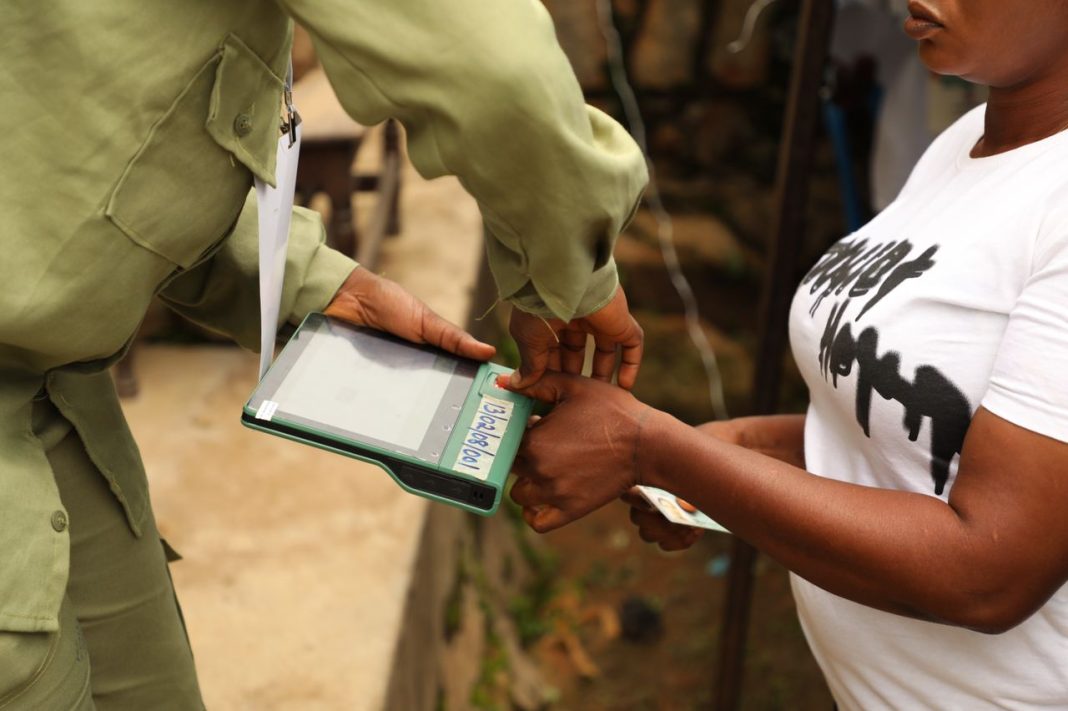
Trust is the most fundamental infrastructure enabling trade and economic activity in any society. It powers credit, enables people who may not have otherwise had the opportunity to enter commerce, reduces transaction costs and ensures that energies are devoted to actual productive activity in the economy. And while physical infrastructure is important in an economy, establishing a trust infrastructure is even more crucial.
If Nigeria is to experience any serious growth that can scale, in an efficient manner, building this trust infrastructure must be at the very top of the priority list of the new government. Currently, the cost of establishing trust before doing transactions is so high in Nigeria, and the process is so cumbersome that it inhibits, rather than facilitate economic activity.
The reality, of course, is that Nigeria is an extremely low-trust society. History has a role to play in this. Up to 30% of those sold into slavery in the area that would become Nigeria during that terrible trade were kidnapped and sold by people they knew. This ensured that cultures developed low trust as a defence mechanism.
Couple this with the fact that in modern Nigeria, the repercussions for breaking societal trust, whether by individuals or government, is minimal, and the reasons for how the society has developed such low trust levels become clear. Yet, this has hampered scaling the economy in the most meaningful ways.
We often like to think this trust is some ephemeral thing that cannot be objectively and structurally established. But this is far from the truth. Careful investment, in a systematic manner, can quickly build this trust infrastructure and ensure that the consequential costs for damaging it are very high for individuals, corporates, and governments to preserve it. Four building blocks are necessary to do this.
The first is establishing a centralised, secure, digitised identity management system for the country. Currently, the most comprehensive identity management system we have in Nigeria is the National Identity Number (NIN) issued by the National Identity Management Commission (NIMC), which had 98.7 million identification numbers issued as of 1 May 2023.
However, there are various pockets of identity management data managed by other bodies such as the Bank Verification Number (BVN) managed by the Nigerian Interbank Settlement Scheme (NIBSS), the Voter Register managed by the Independent National Electoral Commission (INEC) and the Company Registration Data by the Corporate Affairs Commission (CAC) amongst others which are not within the NIN framework, and which have no linkages to it. And where identity management is fragmented like this, it limits its usefulness as the rails of a trust infrastructure that can become the springboard for economic growth.
The second block, which the first must be layered on, is an intuitive mapping of locations in the country and ensuring that any identity captured in the ID management system is linked to this mapped location. Nigeria’s addressing system is dated, and while postcodes exist, they are limited in use to urban centres. Once you move into the fringes of these urban centres and/or rural areas, the addressing system breaks down completely, and you are forced to rely on less precise descriptive methods that are usually off the mark.
A proper, detailed mapping of the country is needed, well-planned to ensure that a uniform system that works for our peculiarities is adopted and used nationally. And crucially, identity must be linked to this location mapping.
The third block is a behaviour linkage. Today, the behaviour data of Nigerians are in silos. Financial behaviour is in accounts, with potential BVN linkage, but this is rarely done in practice. Insurance behaviour is even less visible. Tax payment behaviour is also in a silo. Company ownership. Traffic and driving behaviour. Credit behaviour. There are many more, but these examples show crucial behaviours delinked from the identity management framework, which means rewarding and penalising good behaviour is hard.
This removes a powerful tool in the trust infrastructure – efficiently administered incentives. And these incentives are the fourth and final block for building this trust infrastructure. These incentives can be used to make breaking the fabric of the trust infrastructure very costly to those who do so, which is fundamental to maintaining its integrity.
However, before these incentives can be administered, it is crucial to reiterate the importance of ensuring that the first three blocks must be in place before this fourth can achieve the goals of building trust and not creating predatory government and non-government actors. Identity management must be centralised, layered on a properly mapped location/addressing system and linked to all the ongoing behavioural data in the country.
I believe that the various bodies that manage some form of identity data (NIMC, NCC, NIBSS, etc.) should be unified under one commission or ministerial control. I would also include the National Population Commission as their mandate is important to the identity management system. This new, powerful trust management body must be able to harmonise and unify all existing identity data into the NIN framework as a first step.
Every BVN, Passport Number, Drivers License Number, Tax ID, CAC Number, Insurance Policy Number, Birth Record, Death Record and so on must be linked to this NIN, such that while these continue to function in their roles as identifiers within specific aspects of life in the country, all these diverse repositories can be, and must be traceable to an identity with the NIN framework. The technical backend linkages do not need more than 12 to 15 months to carry out a well-planned project, with seriousness.
But not everyone is within the NIN framework currently. There are 98.7 million NINs, and Nigeria’s population is estimated at well over 200 million. In addition, there are claims that addresses on the NIN are either inaccurate, incomplete and/or inexact. It is why the upcoming census is important. The census is the only exercise which, by design and requirement, must reach every individual in the country, every nook and cranny of the country. It, therefore, presents a unique opportunity.
The NPC seeks a humongous amount of money for this census. With proper planning, Nigeria can get a much bigger bang for the buck than a mere census. We can use it to solve the mapping problem and the challenge of linking every identity within the NIN framework to properly mapped locations while simultaneously capturing those yet to register into the NIN system.
Census enumerators should be equipped with mobile smart devices – perhaps the INEC BVAS devices can be repurposed for this – so that as they go out into the field to enumerate, they first attempt to validate the identity of whoever they are enumerating against the current NIN database leveraging any of fingerprint, facial recognition or simply putting in the NIN or registered phone number, the verification capabilities for which currently exist with the NIN framework.
If the person exists on the NIN database, all they will be required to do should be to update their location using the newly designed location/addressing framework and other such datasets (surname, for example). They should also take an updated picture of the individual. This way, they link an existing identity to a real person in a specific location, count that person and update the location of that person. Crucially, this identity will include biometric data to ensure uniqueness. They should be able to issue small slips that will include the NIN number on the spot.
However, where such an individual does not exist on the NIN database, the enumerators must enrol the person, link them to that address, and issue them the slip. The secure system should be such that the NIN can be generated immediately and issued. This way, the person is counted, and an identity created and linked to a location. The design should be such that the devices can locally store data for a day to handle any network failures, and they can sync with the central database when the enumerators return to their base daily since the necessary power and network infrastructure can be included in these bases.
At the end of the census and harmonisation exercises, we will have gone very far in putting in place the first three building blocks, leaving only the incentives block. This block can be planned in parallel while the census and harmonisation are ongoing. It will require a plethora of experts across various fields, including education, financial services, social sciences, civil service, and other points where citizen behaviour is carried out. The aim is to look at the Nigerian and begin to design which interaction points in their daily living rewards or penalties can be applied without force. Instead it will be more concerned with increasing or reducing costs of accessing things or the ability or otherwise to access such things. It will also prescribe the things government must put in place to encourage good behaviour – for example, clear street signs – and the means to transparently capture behaviour (say, street cameras or account statements), the frameworks for securing, sharing and protecting the identity and behaviour data, and arbitration mechanisms for challenging penalties.
For example, people need to rent houses. This is a necessary and basic interaction. Today, the cost of carrying out a rent transaction is high for both the tenant and the landlord. Leveraging this design, we can improve things pretty remarkably. Landlords and agents being required to carry out an ID check with licensed verification agents digitally on potential tenants and include this in rental agreements can be instituted. Linking these rent agreements to access to other services and leveraging the postal service to confirm such a location update is done in the NIN identity management system as a one-off can then work.
This is one specific example, but the work the incentive design committee must do, push through federal and local legislation and design sensitisation campaigns to educate the public through the National Orientation Agency (NOA) will be crucial. Underpinning all these is, of course, the government playing their part.
The conclusion is that without building this trust infrastructure, we will continue to struggle with scaled commerce which can turbo-charge our economy. The upcoming census, the previous work done with NIMC, NIBSS and others, and the advent of a new administration which can tinker with the structure of institutions to align to deliver, presents a unique opportunity to build this critical infrastructure. We cannot afford to miss it.
Tunde Leye is a partner at SBM Intelligence.
The opinions expressed in this article are solely those of the author.







